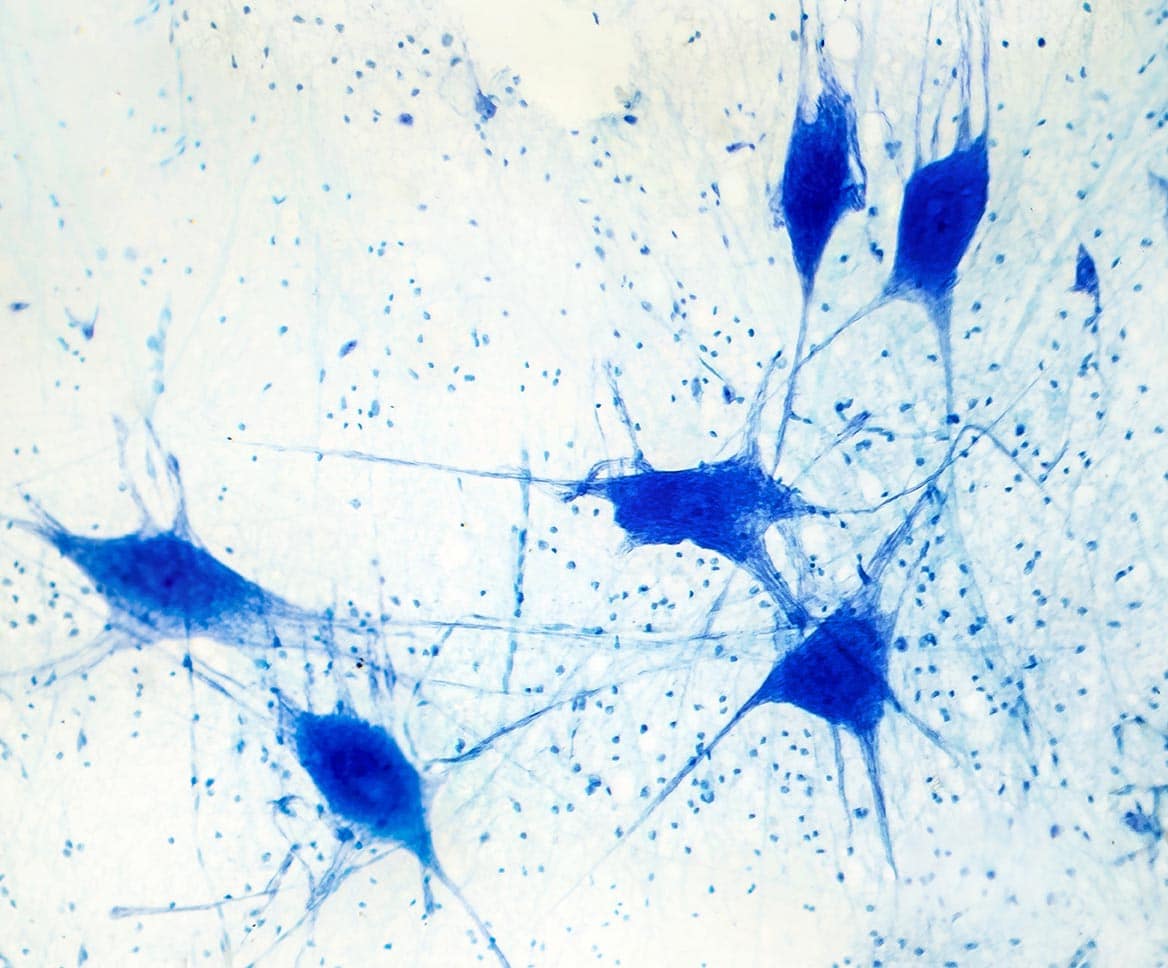LifeArc scientists, in collaboration with researchers in Italy, have created a screening test that could help speed up the discovery of potential medicines to treat brain and spinal cord diseases called amyotrophic lateral sclerosis (ALS) and frontotemporal dementia (FTD).
This test is the start of a new programme to help to find new medicines that could clear the build-up of clusters of a protein called TAR DNA-binding protein 43, or TDP-43, that can lead to these neurodegenerative diseases.
The project, published in the journal Neurobiology of Disease, was part of the Dementia Consortium collaboration with Alzheimer’s Research UK.
Targeting TDP-43
While ALS and FTD both affect different parts of the central nervous system, there are some similarities between the two conditions.
ALS is a type of motor neurone disease (MND), which affects nerve cells in the brain and spinal cord. FTD describes a group of conditions caused by the slow loss of nerve cells in parts of the brain responsible for activities such as movement and speech, leading to disturbances to behaviour, personality and language.
When clusters of TDP-43 build-up (or aggregate) in nerve cells, it can affect how a nerve cell works. Finding ways to clear this build-up and restore the normal function of TDP-43 in cells could help to stop, slow down or reverse ALS or FTD.
Until now, the search for effective new medicines to reduce the abnormal build-up of TDP-43 has previously been hampered by the lack of suitable equipment to rapidly test thousands to millions of potential drugs.
A promising drug discovery tool
Dr Marco Baralle, from the International Centre for Genetic Engineering and Biotechnology (ICGEB) in Italy, has developed cell models that represent the situation found in the body with TDP43 aggregation. LifeArc scientists worked with Dr Baralle to develop a new cell-based test that could be used to evaluate many potential drugs and identify promising ones to study further.
In this paper, the team developed a test where TDP-43 aggregation is induced in cells. They found the cell-based test can show how effective a potential drug sample is at clearing aggregates, either by measuring the disappearance of the TDP-43 aggregates or by restoring the TDP-43 protein to normal.
The researchers then used their assay to screen tricyclic compounds (which are mainly used as anti-depressants) and found these drugs could remove TDP-43 protein aggregates. They also discovered that one of these, thioridazine, improved a movement defect in a fly model of ALS. The next step will be to use this assay to screen for new compounds that are more effective at removing TDP-43 aggregates.
Dr Catherine Kettleborough, Head of Biology at LifeArc and one of the study authors said: “This assay provides an invaluable new way of extensively identifying early potential new medicines that can clear the serious build-up of TDP-43 aggregates.”
Dr Baralle added: “This tool developed through our collaboration with LifeArc and Alzheimer’s Research UK may identify promising new medicines for further development to improve ALS and FTLD therapy.”
Dr James Connell, Head of Translational Science at Alzheimer’s Research UK, said: “The Dementia Consortium is looking for novel targets in the areas of neurodegeneration and the diseases that cause dementia including ALS and FTD. This Dementia Consortium collaboration with Dr Baralle has successfully developed and validated a robust screening approach that has accelerated the identification of compounds with early therapeutic potential.
“By supporting projects like this, we will contribute to making scientific breakthroughs possible and bring about new life-changing dementia treatments.”
See more case studies about our own work and with collaborators.
Media contact
Hannah Severyn
Head of Media and PR at LifeArc



